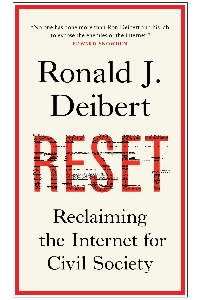Disinformation experts say the Elves, a loosely organized collective of researchers, activists, technology experts and volunteers from across Central and Eastern Europe, are playing an increasingly important role in debunking Russian disinformation about the war in Ukraine, analyst Suzanne Smalley writes for Cyberscoop.
 In fact, the Elves (right) may be the most important and effective citizen-led response to disinformation in existence, said Kevin Sheives, an associate director at the International Forum for Democratic Studies at the National Endowment for Democracy (NED) and formerly a State Department official specializing in Chinese disinformation.
In fact, the Elves (right) may be the most important and effective citizen-led response to disinformation in existence, said Kevin Sheives, an associate director at the International Forum for Democratic Studies at the National Endowment for Democracy (NED) and formerly a State Department official specializing in Chinese disinformation.
“They get more citizens involved in defending democratic values and the integrity of their own information space, but also help to amplify and augment the everyday work of civil society counter-disinformation responders,” he said.
The line between well-intentioned defense of the information space and a quasi-Orwellian campaign to manipulate hundreds of millions of minds in the service of a preferred corporate or political vision might be thinner than most people at Google or its peers seem to realize, says analyst Armin Rosen.
At the recent Oslo Freedom Forum, the Human Rights Foundation’s (HRF) annual convention of political dissidents, Jigsaw’s Beth Goldberg spoke of “pre-bunking at the level of meta-narrative or a rhetorical technique” in response to future conspiracy theories, a form of subtle content manipulation that, she assures us, is “not even political. It’s way more cerebral.” To prevail against disinformation, she said, it was necessary to “tap into people’s deep-seated identities and beliefs,” he writes in The Ailing Human Rights Industry, an article for Tablet:
 Scott Carpenter, Jigsaw’s director of policy [and a NED board member], assured me that there’s nothing to worry about here, and insomuch as there is something to worry about, Google worries about it too. “The first principle has to be, ‘do no harm,’” he said of the ideal anti-disinformation content regime. “There’s a lot of harm out there already, so you’re balancing harms.” A counterproductive way to balance harms, he said, would be for Google to act as chief censor and force users to adapt to its heavy hand. “We want to get beyond the idea that the only response you have is to take things down,” he said. When lies proliferate on Google’s platforms, there can perhaps be “speed bumps so there’s a little bit of friction. People can push through them if they want.” RTWT
Scott Carpenter, Jigsaw’s director of policy [and a NED board member], assured me that there’s nothing to worry about here, and insomuch as there is something to worry about, Google worries about it too. “The first principle has to be, ‘do no harm,’” he said of the ideal anti-disinformation content regime. “There’s a lot of harm out there already, so you’re balancing harms.” A counterproductive way to balance harms, he said, would be for Google to act as chief censor and force users to adapt to its heavy hand. “We want to get beyond the idea that the only response you have is to take things down,” he said. When lies proliferate on Google’s platforms, there can perhaps be “speed bumps so there’s a little bit of friction. People can push through them if they want.” RTWT
 The mercenary spyware industry represents “one of the greatest contemporary threats to civil society, human rights and democracy”, a leading cybersecurity expert warns, as countries grapple with the unregulated spread of powerful and invasive surveillance tools, The Guardian reports:
The mercenary spyware industry represents “one of the greatest contemporary threats to civil society, human rights and democracy”, a leading cybersecurity expert warns, as countries grapple with the unregulated spread of powerful and invasive surveillance tools, The Guardian reports:
Ron Deibert, a political science professor at the University of Toronto and head of Citizen Lab, will testify in front of a Canadian parliamentary committee on Tuesday afternoon about the growing threat he and others believe the technology poses to citizens and democracies. In prepared remarks shared with the Guardian ahead of his testimony to a Canadian parliamentary committee, Deibert [a board member of the National Endowment for Democracy (NED)], cautioned that the software used by law enforcement agencies and autocratic regimes was akin to a “wiretap on steroids”, with little formal oversight.
The software used by law enforcement agencies and autocratic regimes was akin to a “wiretap on steroids”, with little formal oversight, @NEDemocracy board member @citizenlab‘s @RonDeibert @munkschool @uoft tells @guardian https://t.co/4ZMi9IDM8x
— Democracy Digest (@demdigest) August 9, 2022







